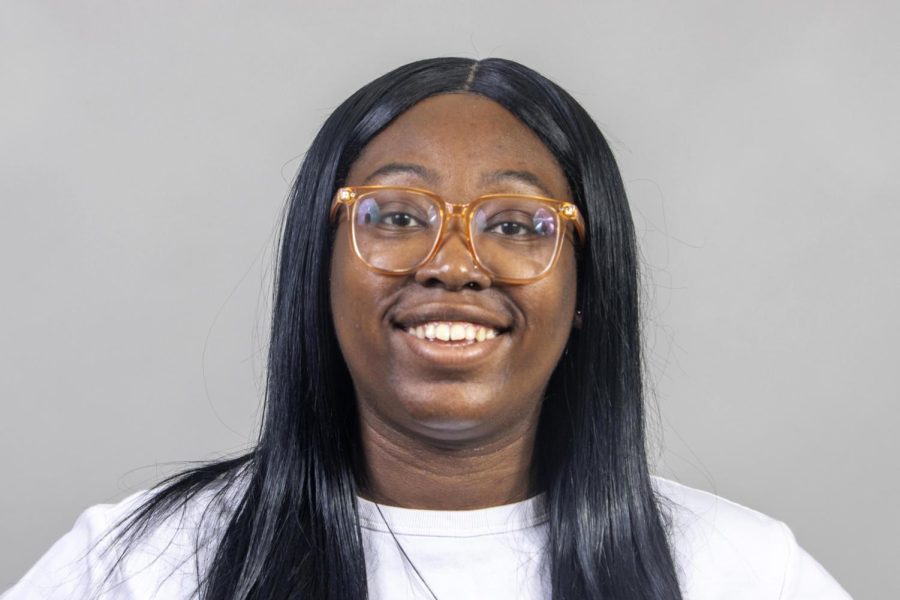COLUMN: What are drugs doing to our communities?
Kyla Moton is a junior English major and can be reached at 217-581-2812.
October 6, 2022
Living in Chicago, you are bound to see something new every day. Living on the West side of Chicago, you may see something a bit more traumatizing.
From the immense amounts of senseless killings in these areas to the growing amount of overdose cases, it can be scary to see some of the things that people living in these areas see every single day.
This is not just a poverty issue, it spreads far beyond the city of Chicago, or any area in the United States. Seeing as I can only speak from my own personal experiences, I can say that I have seen the usage of drugs as well as the effects that drugs can have on you firsthand.
Even as a young girl, it was very difficult to look away when you see a stranger on the side of the road slumped over and potentially overdosing. It is definitely an issue that is plaguing our society.
Living back in Chicago, I went to high school on the near West side of the city, not too far from the United Center, home of the Chicago Bulls basketball team.
Every morning, I would leave the house around 7:30 AM to get to school for breakfast. On my way to school, I would always pass by this shelter. The area was known for drug overdoses and incidents related to drug usage.\
There was a different sight to see every day. People getting into fights, jumping out in the street because they cannot control themselves, and sitting on the sidewalk as still as a Barbie doll.
With elementary schools, public parks, and youth centers in the area, it gets difficult for children to feel comfortable in the area knowing what happens. The area closer to my school was not the best when it came to violent crime, but in terms of drugs, I was not aware of it being an issue until my mom told me a story.
I went to preschool at a youth center not too far from my high school, and there was a playground directly across from the center. As a little girl, I loved going to the playground. So imagine how disappointed I was when my mom did not allow me to go to the park when we were in the area.
Not too long after that, my preschool teachers didn’t allow us there either. When I was about a junior in high school, my mom told me that the reason the preschool program stopped taking the kids to the park was that the preschool teachers found used needles in the woodchips surrounding the park.
Obviously, this is dangerous for any kid who may wander onto the playground, eager to play, and they come across an object that may be foreign to them. As I got older, I started to see more instances of drugs being involved in altercations and seeing people in drug-induced comas with nowhere to go but the streets of Chicago.
Why is it that these drugs are so easily obtainable?
Dealers will sell street drugs and also prescription drugs, which are meant to help people in certain medical instances, for a cheap price. The problem with these drugs is that most people buying these drugs have no idea where they’re coming from, who’s making them, or what’s in the drug.
The only people that truly know what’s in these drugs are the people making them, so if they decide one day to put an extra ingredient in there, it could be lethal. There has also recently been an increase in deaths and overdoses from fentanyl usage, whether this is intentional or unintentional.
First, I believe that there should be a harder crackdown on the sale of these illegal drugs. When it comes to overdosing and deaths from drugs (such as crack cocaine and fentanyl), it should be more common to see the people who sold these victims’ said drugs being prosecuted and punished by the law.
We saw this in the case of rapper Mac Miller, who passed away on September 7th, 2018 from a fentanyl overdose. Mac Miller, whose real name was Malcolm McCormick, was sold oxycodone pills that were laced with fentanyl.
The man who sold him these pills, Stephen Walter, was charged and sentenced to 17 years in prison for this. If more of these dealers were prosecuted and sent to prison for selling counterfeit pills and illegal drugs, I believe that this would become less of an issue.
Kyla Moton is a Junior English creative writing major. She can be reached at klmoton@eiu.edu or 217-581-2812.




































































